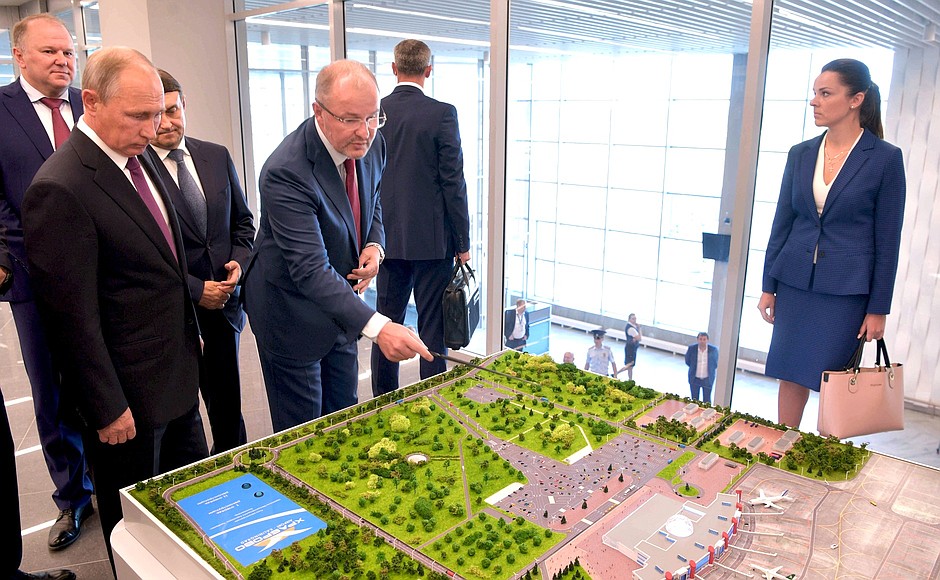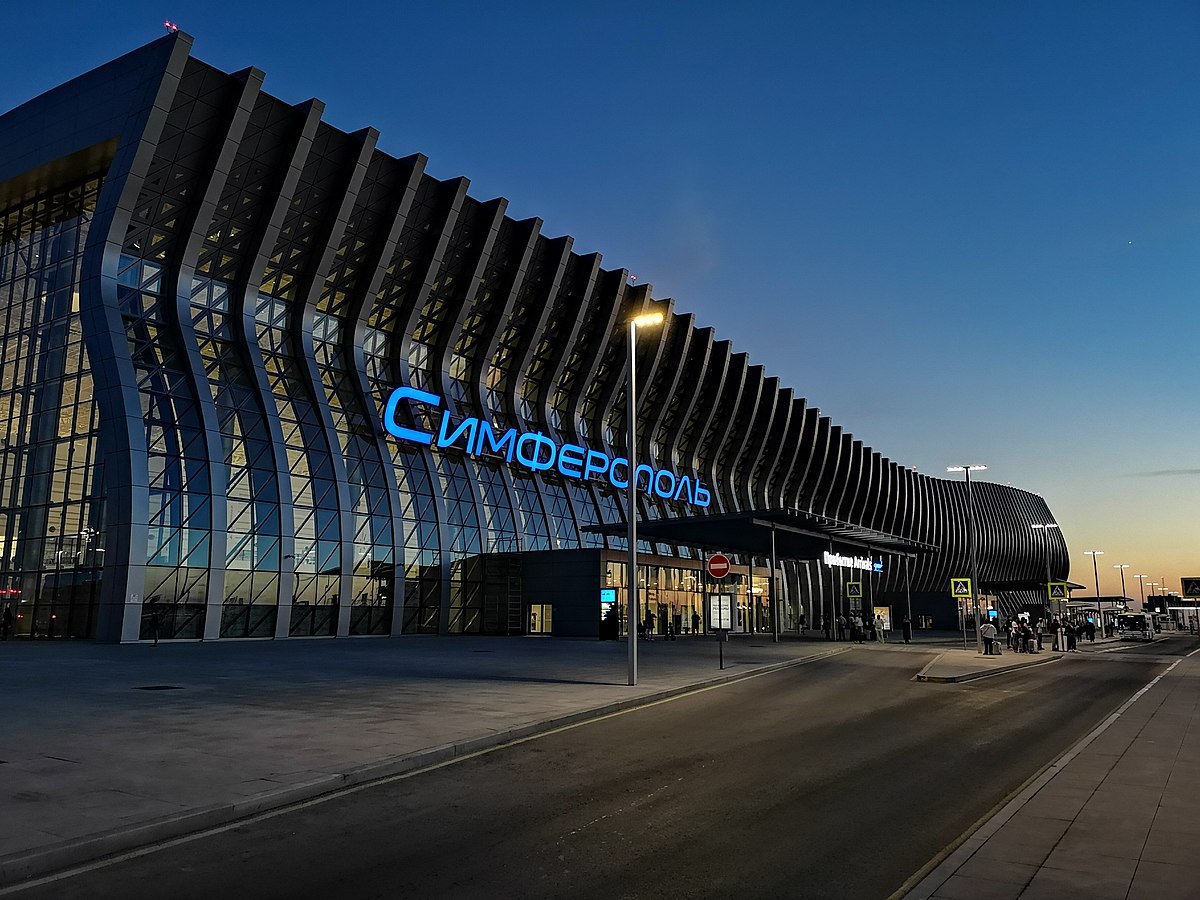Last year, the Russian Federal Agency for Air Transport launched a national voting competition to rename at least 47 airports across the country. Known as “The Great Names of Russia,” the program aimed to highlight the achievements of Russian historical figures according to the state-operated media outlet RIA Novosti.
These figures, noted for having shaped Russian national identity, included famed military men, politicians, artists as well as scientists. Denizens of Moscow decided to change the name of its Sheremetyevo Airport to Aleksandr Pushkin International Airport. Krasnodar Airport would bear the name of Empress Catherine the Great, while voters in Voronezh chose the name of Peter the Great.
It’s not uncommon for major airports around the world to bear the names of significant political or cultural figures in their native land. Montréal’s Dorval International Airport was renamed Pierre Elliott-Trudeau after the Prime Minister’s passing. Roissy Airport, one of the busiest on the planet, took its name from Charles DeGaulle, the founder of the fifth French Republic.
Regardless, Russia’s effort to honor its historical personalities has unexpectedly turned into a national debate on national identity. Most of the municipal airports received names of uncontroversially famous heroes, at least, from the Kremlin’s perspective . But as voters in the Siberian city of Omsk discovered, there are unwritten rules. Their overwhelming decision to rename their airport after the deceased rock star Egor Letov was promptly blocked by authorities.
But perhaps the most striking clash of identity-building came from two of Russia’s exclaves: Kaliningrad and the Crimean peninsula.

Kaliningrad is Russia’s westernmost exclave, nestled between the Baltic Sea, Poland and Lithuania. Locals there planned to name their airport after the city’s most illustrious son, the Enlightenment philosopher, Immanuel Kant. They did not expect, however, that their decision would irk so much controversy. For program organizers, the problem with Kant had nothing to do with the fact that he wasn’t Russian at all. Kant, afterall, was German.
At the time of Kant’s birth in 1724, Kaliningrad was known as Königsberg, the historic heartland of German Prussia. The city would eventually fall into Soviet hands in 1945 as the Third Reich drew its last breath. By then, most of the city’s historic core had been obliterated by constant bombings. Since the USSR required year-round “ice-free” ports in the Baltic, the area would be incorporated directly into the territory of the Russian Soviet Federative Socialist Republic (RSFSR). Its entire German population would be expelled and replaced by ethnic Russians as well as representatives of other Soviet nationalities. The area would be closed off to outsiders and turned into a network of top-secret military facilities. Some of these restrictions continue on into the present day.
For many contemporary Russians, Kant’s ideals conflicted with the kind of national identity-building that the airport renaming campaign stood for. The author of “Critique of Pure Reason” was a cosmopolitan figure, who believed in the “freedom to use reason publicly in all matters”—ideas that definitely do not fit with Russia’s new authoritarian nationalism.
Ultimately, under Kremlin pressure, Kant finished third in the polls leaving the city’s newly-reconstructed Khrabrovo Airport to be renamed after the Soviet general who captured the town back in 1945.

The process of renaming an airport on the Crimean peninsula took a very different direction. There, voters sparked much less controversy when they chose to rename the Simferopol International Airport after the renowned romantic artist and Crimean native, Ivan Aivazovsky. The painter, whose realistic and dramatic Black Sea scenes are among the best in the world, is known to Armenians as Hovhaness Ayvazian.
In 2015, the Ukrainian government officially renamed the facility Amet-khan Sultan International Airport, after a local Crimean-Tatar war hero. However, this decision could not be implemented since the area had already been annexed by neighboring Russia.
Both Kant and Aivazovsky were born in the cities their respective airports were located in at a time when they were under the control of the Russian Empire. Both of their native exclaves have histories of contested Russian identity. However, Kant’s German-ness prevented his name from adorning an airport, while the choice of the Armenian Aivazovsky was almost a given.
While Aivazovsky had been at the center of considerable debate over his nationality (claimed as Russian, Ukrainian and Armenian), he was resolute in his Armenian identity. He was a member of the Armenian Apostolic Church, married into an Armenian family and even signed his paintings in the Armenian script. According to one story, when asked, he responded “Yes, I live in Russia, but I am Armenian. Russia is my second homeland. Armenia is my first homeland.”
Aivazovsky is not the only prominent Armenian figure to be appropriated into Russian culture. The famed avant-garde director Sergei Parajanov was born to an Armenian family in the Georgian capital of Tbilisi and then lived most of his life in Ukraine. Despite this, he is frequently referred to as a Russian director.
In any case, the inclusion of the Armenian Aivazovsky and the rejection of the German Kant in the “Great Names of Russia” contest raises interesting questions, not only about the boundaries of Russian identity, but Diaspora Armenian identity, as well.


Thank you Raffi for another informative and balanced article. You are quite right about the questions that are raised in my mind, by your article, on the subject of Diaspora identities, and on inter-ethnic conflicts. Ahmet-Khan was a skilled and brave Soviet fighter-pilot/war hero, but his own brother Imran was recruited by the Nazis during WWII.